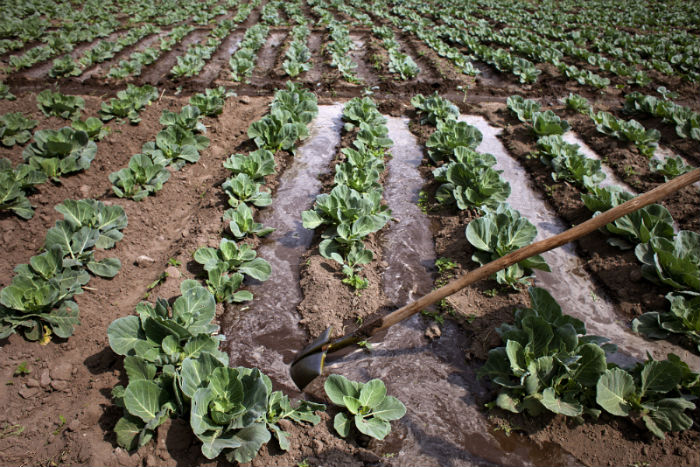Residents of Songea District have expressed the need to revamp irrigation schemes in the area so as to increase crop production.
They did so during a meeting with Agriculture deputy minister Hussein Bashe at Namatuhi Village on Friday.
The meeting was held after touring the Njoka A and Namatuhi Irrigation Schemes in Peramiho that benefit 301 farmers with the ability to irrigate 220 hactares of land.
“Following challenges facing the schemes, only 192 hactares of land are currently being irrigated. Two canals at the Namatuhi Irrigation Scheme and one at the Njoka Irrigation Schemes are not properly working,” said Namatuhi Village chairman Beda Zenda.
He said establishment of the schemes had increased maize production from two tonnes per hactare to 4.5 tonnes per hectare, the equivalence of 125 percent increase.
“Farmers earnings increased to Sh1.35 million per hectare from Sh600,000 per hectare. However, absence of reliable market and increased price of agricultural inputs are stumbling blocks impeding prosperity of agricultural production,” he explained.
Mr Kelvin Mbunda said most irrigation schemes were incomplete, therefore adversely affecting irrigation in available hectares of land owned by farmers. “The price of fertilizer has reached Sh80,000. Farmers can’t afford this,” he said, requesting for the government’s intervention.
He was seconded by Ms Donatha Charles who said the situation was worse due to farmers’ lack of access to low interest loans from the government and financial institutions that could support farming.
“We’ve 15 well organized groups, but their efforts to secure low interest loans have failed,” she said, asking the government to empower farmers.
During the meeting, Songea District Commissioner Pololet Mgema supported his farmers, saying efficiency in agricultural activities would be realised through effective irrigation schemes. “The two irrigation schemes are shoddy requiring major rehabilitations. Honourable Deputy Minister say something in order to restore smiles on farmers faces,” he said. Ms Jaqueline Msongozi (Special Seats MP-CCM) said decline in maize price and excessive increase in prices of fertilizers dealt a huge blow to farmers.
In his response, Mr Bashe said irrigation schemes have died because of poor management and care by farmers.
Therefore, he instructed the irrigation officer to collaborate with the district council to evaluate costs of repairing the irrigation schemes.
“The analysis should include costs of constructing a canal that will take waters to the farms and another canal for taking water to the river from the farms to prevent floods in the fields,” he said.
After evaluations and rehabilitations, schemes will be registered in a database and proper management of irrigation funds through the Irrigation Development Funds (IDF) will be established,” he explained.
“You have been choosing embezzlers to manage irrigation schemes. The government will encourage proper management of irrigation funds in order to facilitate repair and construction of new schemes in the region and other parts of the country,” said Mr Bashe.
He said Sh600 million has been allocated in 2021/22 budget for rehabilitation and construction of Muhukuru Irrigation Scheme in the district.
On high prices of fertilizers and low prices of maize, he said while the government was taking short, medium and long term measures to control fertilizers prices, next month, the National Food Reserve Agency (NFRA) will start buying the produce at Sh500 per kilo.
“Centres will be opened in every district and villages to reduce farmers inconveniences of taking their produce to a far located centres,” he said.
Speaking about the 10 percent empowerment funds disbursed by council authorities countrywide to the women, youth and People with Disabilities (PwDs), the Songea District Executive Director (DED) Simon Bulenganija pledged to dispatch a team of experts to meet groups in the village.


